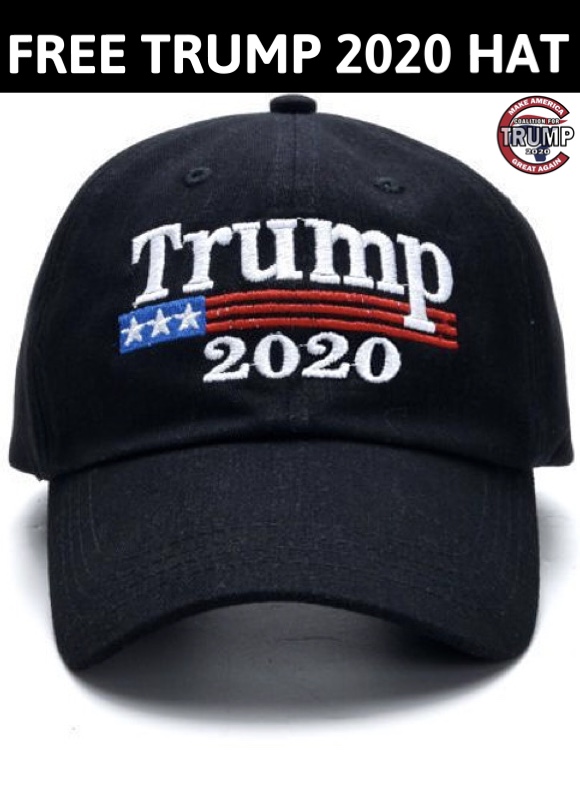Donald Trump just told the NFL protestors to put up or shut up!
The NFL anthem kneeling protests are heading into their third season.
Most Americas are fed up with and the NFL’s viewership numbers are way down. Drastically down.
Our President has been critical of the NFL in the past, but he just raised the stakes.
Since it’s unclear to most people what injustice the NFL players have suffered, Trump just called them out on it.
POLL: Are You Watching the NFL This Year?
They claim that they are protesting injustice, presumably false arrests, false imprisonment, targeted at the black community. So Trump just told them to put up or shut up: “Tell me who I should pardon?”
As the Commander in Chief, the Constitution gives the President unlimited pardon power. If there have been injustices done, the President is saying he’s willing to make them right.
And it’s not just lip-service. The President has already used his pardon power several times, in many high profile cases. He’s made it clear: his door is open and he’s willing to listen and make things right.
So the ball’s in the NFL protestor’s court. Will they take him up on the offer? Do they even have any specific instances of real injustice?
READ MORE: The NFL Was Just Busted For Committing FRAUD Upon the FCC!
The answers to those questions will tell us whether the protests are valid or whether they’re just attention-seeking grandstanding of people who hate America.
Here are more details on this story, from our friends over at Reason.com:
President Donald Trump appears to have heard the applause he received for pardoning Alice Johnson, the 63-year-old who served more than two decades in prison for a nonviolent drug offense before Trump commuted her life sentence this week.
Now Trump says he wants to issue more pardons—not just for politically aligned celebrities but for real people who have been unfairly imprisoned. And he says he wants input from players in the National Football League who have been protesting the national anthem. Yes, really.
“I am going to ask them to recommend to me people that were unfairly treated” by the justice system, Trump said to reporters outside the White House this morning. “And I am going to take a look at those applications.”
If those people have been unfairly treated by the system, Trump said, his administration would seek to “pardon them, or at least let them out.” He said the offer was an opportunity for the national anthem protests to be more than just talk.
It’s worth noting that the anthem protests began two years ago as a way to raise public awareness about innocent African Americans killed by cops. That’s something that even the mighty power of the presidential pardon can’t fix.
Whether Trump’s offer helps reduce tensions between the president and professional football players has yet to be seen. It’s also somewhat beside the point. If it opens a dialogue, great. The more important development here is Trump’s apparent willingness to embrace the presidential pardon as the ultimate check on America’s runaway incarceration problem (even though the president has, at other times, embraced ideas that cut the other way).
Even without input from NFL players, Trump will likely be issuing more pardons in the near future. The administration has prepared the pardoning paperwork for at least 30 people, CNN reported Wednesday.
“There will be more pardons,” Trump said Friday morning. Specifically, Trump said he was considering a pardon for the late boxer Muhammad Ali—who already had his conviction for draft evasion overturned by the Supreme Court—along with “some others, some folks who have sentences that are unfair.”
“We hope the president acts boldly here,” says Kevin Ring, president of Families Against Mandatory Minimums.
Ring praised Trump for doing the right thing by commuting Johnson’s sentence. “There are thousands of others who received excessive sentences, who pose no threat to public safety any longer, and deserve the same chance to rejoin their families and resume their lives,” he tells Reason.
Trump has spent most of his first year and a half in office being frustrated by the limits of presidential power. Even though the modern presidency is far more powerful than the Constitution appears to allow, Trump has learned repeatedly that his word isn’t always law. Executive orders can be held up in court, repealing Obamacare or overhauling the tax code requires congressional assent, and shifting trade policy requires investigations, reports, and hearings. For all the ink that has been spilled about Trump upending the rule of law, the systems designed to check presidential ambitions (at least the ones that Congress hasn’t deliberately kneecapped over the years) still work pretty well.
But the power of the pardon is different. It’s a virtually unchecked—and completely constitutional—tool of the presidency. Trump can wield it pretty much however he chooses, as he seems to be figuring out. (For now, let’s set aside the question of whether Trump has the authority to pardon himself, something he reiterated this morning that he thinks he has the authority to do.)
“The pardons are a very positive things for a president,” Trump said Friday. “The power to pardon is a beautiful thing.”
POLL: Are You Watching the NFL This Year?
Did our President just outfox the protestors?
Sound off below.





Join the conversation!
Please share your thoughts about this article below. We value your opinions, and would love to see you add to the discussion!